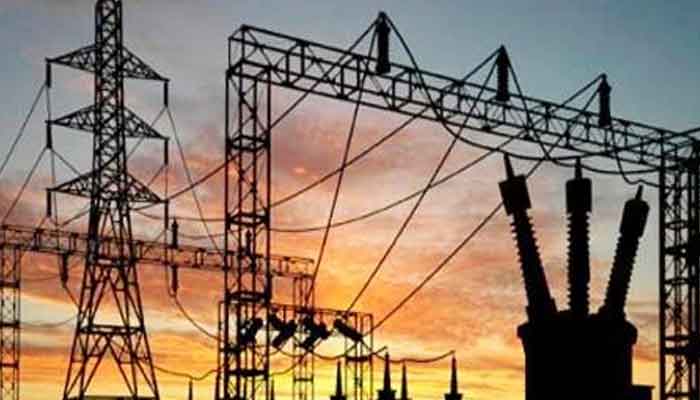IMF wants Islamabad to budget power sector’s subsidies
“Under the IMF program, most of the power sector’s subsidies will continue,” a source, privy to ongoing IMF-Pakistan’s bailout discussion said. “The government is in the process of making these subsidies part of the federal budget for the fiscal year 2019/20 as per strong recommendations of the IMF.”
LAHORE: The International Monetary Fund (IMF) holds no reservation over power sector’s subsidies, but what it wants from Islamabad is to accurately determine sources of their funding in the upcoming budget, well-placed sources said on Monday.
The IMF asked the government to clearly make electricity subsidies – including those announced by the present government for industrial sector – part of the federal budget 2019/20.
“Under the IMF program, most of the power sector’s subsidies will continue,” a source, privy to ongoing IMF-Pakistan’s bailout discussion said. “The government is in the process of making these subsidies part of the federal budget for the fiscal year 2019/20 as per strong recommendations of the IMF.”
Sources said acceding to IMF’s demand entails striking of a loan deal with the government. Government used to make subsidy announcements, but such commitment is not regularly honoured due to a variety of reasons.
“It is easier said than done, as the subsidy to consumers is constrained mainly due to cash crunch and lack of a systematic way of clearing dues,” a senior official said, requesting anonymity. “Ideally, all amount of power (sector) subsidy should be fully budgeted as it tends to help in releasing amount in a more systematic way.”
Presently, the government gives subsidies to various types of power consumers, including industries – 7.5 cents per unit or even less – and agriculture sector – Rs5.5/unit capped tariff on tubewells. The government also gives subsidies to domestic consumers of lower slabs in Balochistan, federally-administered tribal area, Azad Jammu and Kashmir and Karachi.
Analysts said delay in payments of subsidies always adds to growth in circular debt. The government will have to release subsidies on time to clear dues of power producers to keep payables in check.
“It is a responsibility of the government as far as averting piling up of circular debt is concerned,” an analyst said. The analysts said budgeting of power sector subsidies makes sense. The government should appropriately allocate subsidies against all heads in the federal budget to ensure timely payments round the year.
A senior official said flow of circular debt is adversely impacted from accumulation of power thefts and losses and subsidies to different consumer categories. Energy experts said delay in determination of tariff also leads to growth in circular debt. Upward or downward tariff determination also affects flow of circular debt. There should be timely tariff determination to pass on benefits to consumers.
Power sector’s subsidies are usually released against the monthly claims submitted to the finance ministry by power distribution companies through the Central Power Purchasing Agency. Quantum of power sector’s subsidies escalates when government has to rely on costly power generation and inefficient power plants. Analysts said power tariff might not go up in near future if subsidies are made part of budget.
Usually, the IMF does not like subsidies, but it currently emphases timely payments of power sector’s dues. Sources said there is a strong possibility of unaltered subsidy mechanism under the IMF program as the government prefers support to domestic as well as industrial consumers.
-
 Selma Blair Explains Why Multiple Sclerosis 'isn't So Scary'
Selma Blair Explains Why Multiple Sclerosis 'isn't So Scary' -
 Will Smith Surprises Wife Jada Pinkett With Unusual Gift On Valentine's Day
Will Smith Surprises Wife Jada Pinkett With Unusual Gift On Valentine's Day -
 Shamed Andrew Has Paid Royal Favours With ‘national Scandal’
Shamed Andrew Has Paid Royal Favours With ‘national Scandal’ -
 Prince William Ticked Off By How Andrew ‘behaved With Staff’
Prince William Ticked Off By How Andrew ‘behaved With Staff’ -
 Prince William Questions Himself ‘what’s The Point’ After Saudi Trip
Prince William Questions Himself ‘what’s The Point’ After Saudi Trip -
 James Van Der Beek's Friends Helped Fund Ranch Purchase Before His Death At 48
James Van Der Beek's Friends Helped Fund Ranch Purchase Before His Death At 48 -
 King Charles ‘very Much’ Wants Andrew To Testify At US Congress
King Charles ‘very Much’ Wants Andrew To Testify At US Congress -
 Rosie O’Donnell Secretly Returned To US To Test Safety
Rosie O’Donnell Secretly Returned To US To Test Safety -
 Meghan Markle, Prince Harry Spotted On Date Night On Valentine’s Day
Meghan Markle, Prince Harry Spotted On Date Night On Valentine’s Day -
 King Charles Butler Spills Valentine’s Day Dinner Blunders
King Charles Butler Spills Valentine’s Day Dinner Blunders -
 Brooklyn Beckham Hits Back At Gordon Ramsay With Subtle Move Over Remark On His Personal Life
Brooklyn Beckham Hits Back At Gordon Ramsay With Subtle Move Over Remark On His Personal Life -
 Meghan Markle Showcases Princess Lilibet Face On Valentine’s Day
Meghan Markle Showcases Princess Lilibet Face On Valentine’s Day -
 Harry Styles Opens Up About Isolation After One Direction Split
Harry Styles Opens Up About Isolation After One Direction Split -
 Shamed Andrew Was ‘face To Face’ With Epstein Files, Mocked For Lying
Shamed Andrew Was ‘face To Face’ With Epstein Files, Mocked For Lying -
 Kanye West Projected To Explode Music Charts With 'Bully' After He Apologized Over Antisemitism
Kanye West Projected To Explode Music Charts With 'Bully' After He Apologized Over Antisemitism -
 Leighton Meester Reflects On How Valentine’s Day Feels Like Now
Leighton Meester Reflects On How Valentine’s Day Feels Like Now




